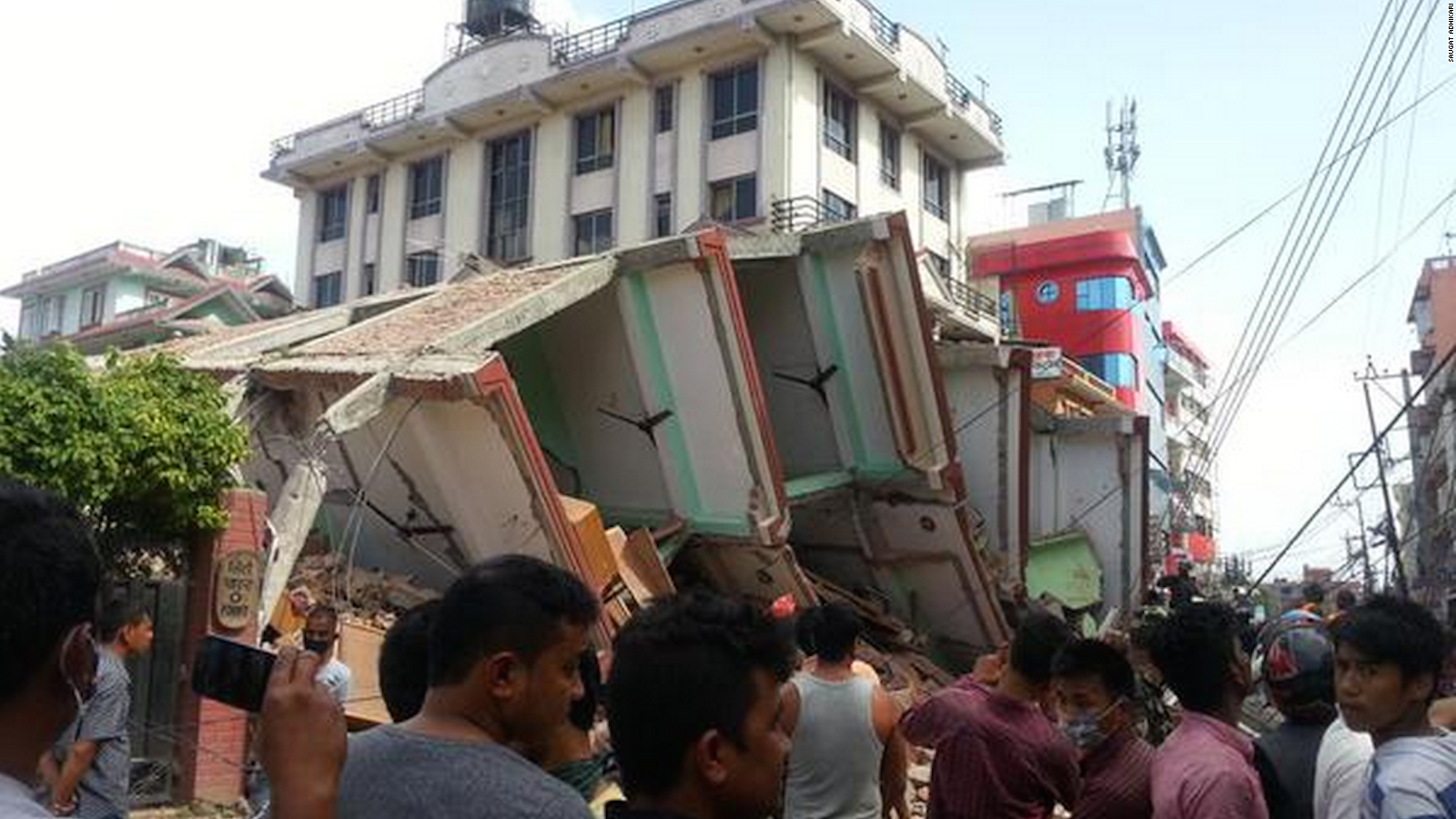Friday, 15 May 2015
Edo State Governor, Oshiomhole set to re-marry Ethiopian Model
Governor Adams Oshiomhole of Edo Stae is set to re-marry. The Governor announced his plans to marry model, Miss Lara Fortes, five years after losing his wife Clara, to cancer. The marriage is scheduled to hold on Friday May 15, 2015 at Etsako West Local Government Council Marriage Re gistry, Auchi at 10a.m.
Tuesday, 12 May 2015
Yorubas Are The Problem With Nigeria – By Lamido Sanusi
In sum, the Yoruba political leadership, as mentioned by Balarabe Musa, has shown itself over the years to be incapable of rising above narrow tribal interests and reciprocating goodwill from other sections of the country by treating other groups with respect. Practically every crisis in Nigeria since independence has its roots in this attitude.
- The Yoruba elite and area-boy politics;
- Igbo marginalisation and the responsible limits of retribution; and
- The Yoruba Factor and “Area-boy” Politics.
My views on the Yoruba political leadership have been thoroughly articulated in some of my writings, prime among which was ” Afenifere: Syllabus of Errors” published by This Day (The Sunday Newspaper) on Sept 27, 1998. There was also an earlier publication in the weekly Trust entitled ” The Igbo, the Yoruba and History” (Aug. 21, 1998).
In sum, the Yoruba political leadership, as mentioned by Balarabe Musa, has shown itself over the years to be incapable of rising above narrow tribal interests and reciprocating goodwill from other sections of the country by treating other groups with respect. Practically every crisis in Nigeria since independence has its roots in this attitude.
The Yoruba elite were the first, in 1962, to attempt a violent overthrow of an elected government in this country. In 1966, it was the violence in the West which provided an avenue for the putsch of 15th January. After Chief Awolowo lost to Shagari in 1983 elections, it was the discontent and bad publicity in the South-West which led to the Buhari intervention.
When Buhari jailed UPN governors like Ige and Onabanjo, the South-Western press castigated that good government and provided the right mood for IBB to take over power. As soon as IBB cleared UPN governors of charges against them in a politically motivated retrial, he became the darling of the South-West. When IBB annulled the primaries in which Adamu Ciroma and Shehu Yar Adua emerged as presidential candidates in the NRC and SDP, he was hailed by the South-West. When the same man annulled the June 12, 1993 elections in which Abiola was the front-runner, the South-West now became defenders of democracy.
When it seemed Sani Abacha was sympathetic to Abiola, the South-West supported his take-over. He was in fact invited by a prominent NADECO member to take over in a published letter shortly before the event. Even though Abiola had won the elections in the North, the North was blamed for its annulment. When Abdulsalam Abubakar started his transition, the Yoruba political leadership through NADECO presented a memorandum on a Government of National Unity that showed complete disrespect for the intelligence and liberties of other Nigerians.
Subsequently, they formed a tribal party which failed to meet minimum requirements for registration, but was registered all the same to avoid the violence that was bound to follow non-registration, given the area-boy mentality of South-West politicians. Having rejected an Obasanjo candidacy and challenged the election as a fraud in court, we now find a leading member of the AD in the government, a daughter of an Afenifere leader as Minister of State, and Awolowo´s daughter as Ambassador, all appointed by a man who won the election through fraud.
Meanwhile, nothing has been negotiated for the children of Abiola, the focus of Yoruba political activity. In return for these favours, the AD solidly voted for Evan Enwerem as Senate President. This is a man who participated in the two-million- man March for Abacha´s self-succession. He also is reputed to have hosted a meeting of governors during IBB´s transition, demanding that June 12 elections should never be de-annulled and threatening that the East would go to war if this was done. When Ibrahim Salisu Buhari was accused of swearing to a false affidavit, the Yoruba political elite correctly took up the gauntlet for his resignation.
When an AD governor, Bola Tinubu, swears to a false affidavit that he attended an Ivy League University which he did not attend, we hear excuses.
For so many years, the Yoruba have inundated this country with stories of being marginalised and of a civil service dominated by northerners through quota system. The Federal Character Commission has recently released a report which shows that the South-West accounts for 27.8% of civil servants in the range GL08 to GL14 and a full 29.5% of GL 15 and above. One zone out of six zones controls a full 30% of the civil service leaving the other five zones to share the remaining 70%. We find the same story in the economy, in academia, in parastatals.
Yet in spite of being so dominant, the Yoruba complained and complained of marginalization. Of recent, in recognition of the trauma which hit the South-West after June 12, the rest of the country forced everyone out of the race to ensure that a South-Westerner emerged, often against the best advice of political activists.
Instead of leading a path of reconciliation and strong appreciation, the Yoruba have embarked on short-sighted triumphalism, threatening other “nationalities” that they ( who after all lost the election) will protect Obasanjo ( who was forced on them). No less a person than Bola Ige has made such utterances.
To further show that they were in charge, they led a cult into the Hausa area of Sagamu, murdered a Hausa woman and nothing happened. In the violence that followed, they killed several Hausa residents, with Yoruba leaders like Segun Osoba, reminding Nigerians of the need to respect the culture of their host communities. This would have continued were it not for the people of Kano who showed that they could also create their own Oro who would only be appeased through the shedding of innocent Yoruba blood.
I say all this, to support Balarabe Musa´s statement, that the greatest problem to nation-building in Nigeria are the Yoruba Bourgeoisie. I say this also to underscore my point that until they change this attitude, no conference can solve the problems of Nigeria. We cannot move forward if the leadership of one of the largest ethnic groups continues to operate, not like statesmen, but like common area boys.
iii.The Igbo Factor and the Reasonable Limits of Retribution.
I say all this, to support Balarabe Musa´s statement, that the greatest problem to nation-building in Nigeria are the Yoruba Bourgeoisie. I say this also to underscore my point that until they change this attitude, no conference can solve the problems of Nigeria. We cannot move forward if the leadership of one of the largest ethnic groups continues to operate, not like statesmen, but like common area boys.
iii.The Igbo Factor and the Reasonable Limits of Retribution.
The Igbo people of Nigeria have made a mark in the history of this nation. They led the first successful military coup which eliminated the Military and Political leaders of other regions while letting off Igbo leaders. Nwafor Orizu, then Senate President, in consultation with President Azikiwe, subverted the constitution and handed over power to Aguiyi-Ironsi. Subsequent developments, including attempts at humiliating other peoples, led to the counter-coup and later the civil war. The Igbos themselves must acknowledge that they have a large part of the blame for shattering the unity of this country.
Having said that, this nation must realise that Igbos have more than paid for their foolishness. They have been defeated in war, rendered paupers by monetary policy fiat, their properties declared abandoned and confiscated, kept out of strategic public sector appointments and deprived of public services. The rest of the country forced them to remain in Nigeria and has continued to deny them equity.
The Northern Bourgeoisie and the Yoruba Bourgeoisie have conspired to keep the Igbo out of the scheme of things. In the recent transition when the Igbo solidly supported the PDP in the hope of an Ekwueme presidency, the North and South-West treated this as a Biafra agenda. Every rule set for the primaries, every gentleman´s agreement was set aside to ensure that Obasanjo, not Ekwueme emerged as the candidate. Things went as far as getting the Federal Government to hurriedly gazette a pardon. Now, with this government, the marginalistion of the Igbo is more complete than ever before. The Igbos have taken all these quietly because, they reason, they brought it upon themselves. But the nation is sitting on a time-bomb.
After the First World War, the victors treated Germany with the same contempt Nigeria is treating Igbos. Two decades later, there was a Second World War, far costlier than the first. Germany was again defeated, but this time, they won a more honourable peace. Our present political leaders have no sense of History. There is a new Igbo man, who was not born in 1966 and neither knows nor cares about Nzeogwu and Ojukwu. There are Igbo men on the street who were never Biafrans. They were born Nigerians, are Nigerians, but suffer because of actions of earlier generations. They will soon decide that it is better to fight their own war, and may be find an honourable peace, than to remain in this contemptible state in perpetuity.
Having said that, this nation must realise that Igbos have more than paid for their foolishness. They have been defeated in war, rendered paupers by monetary policy fiat, their properties declared abandoned and confiscated, kept out of strategic public sector appointments and deprived of public services. The rest of the country forced them to remain in Nigeria and has continued to deny them equity.
The Northern Bourgeoisie and the Yoruba Bourgeoisie have conspired to keep the Igbo out of the scheme of things. In the recent transition when the Igbo solidly supported the PDP in the hope of an Ekwueme presidency, the North and South-West treated this as a Biafra agenda. Every rule set for the primaries, every gentleman´s agreement was set aside to ensure that Obasanjo, not Ekwueme emerged as the candidate. Things went as far as getting the Federal Government to hurriedly gazette a pardon. Now, with this government, the marginalistion of the Igbo is more complete than ever before. The Igbos have taken all these quietly because, they reason, they brought it upon themselves. But the nation is sitting on a time-bomb.
After the First World War, the victors treated Germany with the same contempt Nigeria is treating Igbos. Two decades later, there was a Second World War, far costlier than the first. Germany was again defeated, but this time, they won a more honourable peace. Our present political leaders have no sense of History. There is a new Igbo man, who was not born in 1966 and neither knows nor cares about Nzeogwu and Ojukwu. There are Igbo men on the street who were never Biafrans. They were born Nigerians, are Nigerians, but suffer because of actions of earlier generations. They will soon decide that it is better to fight their own war, and may be find an honourable peace, than to remain in this contemptible state in perpetuity.
The Northern Bourgeoisie and the Yoruba Bourgeoisie have exacted their pound of flesh from the Igbos. For one Sardauna, one Tafawa Balewa, one Akintola and one Okotie-Eboh, hundreds of thousands have died and suffered.
If this issue is not addressed immediately, no conference will solve Nigeria´s problems. By Sanusi Lamido Sanusi.
Being Excerpts from A Paper Presented At The “National Conference On The 1999 Constitution” Jointly Organised By The Network For Justice And The Vision Trust Foundation, At The Arewa House, Kaduna From 11th –12th September, 1999.
In Nepal, after new earthquake, people seek open spaces to avoid falling debris
(CNN)On Tuesday, the ground shook. Again.
But it soon became clear that this was no mere aftershock, scary though those have been.
This was another major earthquake, the kind where you run for your life, where you seek any open area so nothing falls on your head and you don't get trapped under the rubble.
It was then, near the epicenter of Tuesday's quake, that the world's most dangerous airport became a place of safe haven.
In search of any open area
People in Lukla -- a town that serves as a gateway to the Everest region and that was near the epicenter of Tuesday's quake -- rushed to the airport.
Most of Lukla's buildings are perched on hilly grounds.
The airport is said to be highly dangerous because its runway is short, and it's surrounded by mountains. But on Tuesday, Chungba Sherpa was glad to be there.
"People are here because there is open space," he said by telephone. "They are very scared."
Not for the first time. On April 25 -- just two weeks and three days ago -- Nepal was devastated by a 7.8 magnitude earthquake. More than 8,000 people were killed and nearly 18,000 were injured.
No mere aftershock
A frightening series of aftershocks has kept residents of Nepal on edge. But none had nearly the power of Tuesday's magnitude-7.3 quake, which was centered near Mount Everest.
It was felt with force 52 miles (83 kilometers) to the east, in the country's capital, Kathmandu, which suffered so much in the April earthquake.
Mingma Sherpa was in his car with two friends in Thamel, Kathmandu's congested tourist district, when the earth began to tremble.
In his rear-view mirror he saw people running in panic. It was then that he knew it was another earthquake.
He was in a hotel parking lot, surrounded by tall buildings. The ground shook for 30 seconds.
He ordered his friends out of the car, and they ran for their lives, joining the crowd, desperately seeking an open space in a part of Kathmandu where there are few.
Eventually, when everything stopped, he was able to make it back home.
Flower pots tumbling, stairs shaking, people fleeing
Anup Kaphle, the digital foreign editor for the Washington Post, was in the Shangri La hotel in Kathmandu when the quake hit. He saw flower pots tumbling. The stairs were shaking.
He waited a minute and then ran out.
The streets were in chaos, clogged with traffic. People were staying outside.
But, in his area, Kaphle did not see any fresh buildings down.
"I don't think anyone will be sleeping indoors"
Orla Fagan, a spokeswoman for the U.N. Office for the Coordination of Humanitarian Affairs, was on the second floor of a building in Kathmandu when the shaking began. An earthquake alarm filled the air -- high-pitched, indicating the quake was intense.
Eight people tried to shelter under a door frame, she said.
"It was very, very scary," she said. "The quake was so powerful you couldn't move if you wanted to."
People were out on the streets, Fagan said by telephone, too frightened to go inside.
And the fear, now reinforced by a second major earthquake, seemed likely to persist.
"I don't think anyone will be sleeping indoors tonight," she said.
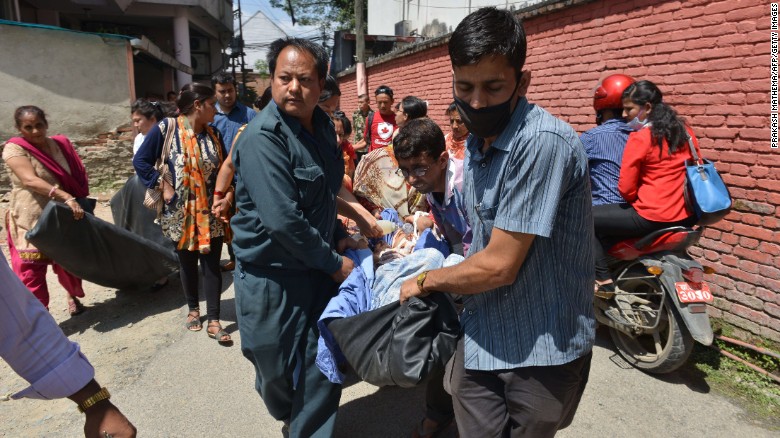
Nepal struck by another deadly quake 15 photos
People are carried out of a hospital building in Kathmandu on May 12.
Hide Caption
8 of 15
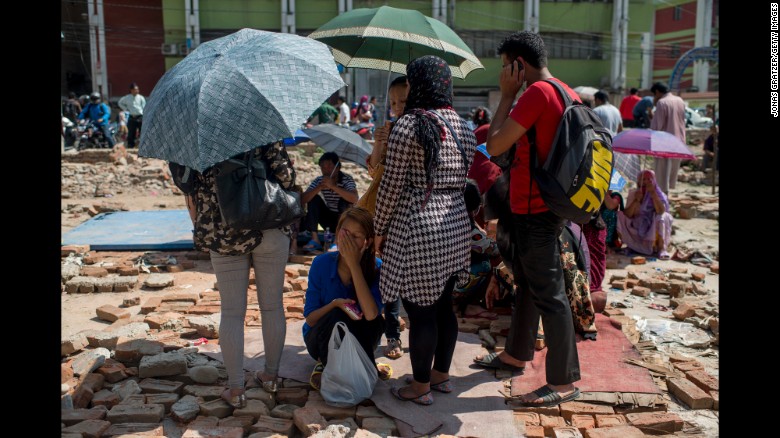
Nepal struck by another deadly quake 15 photos
People gather in an open space in Kathmandu on May 12.
Hide Caption
9 of 15
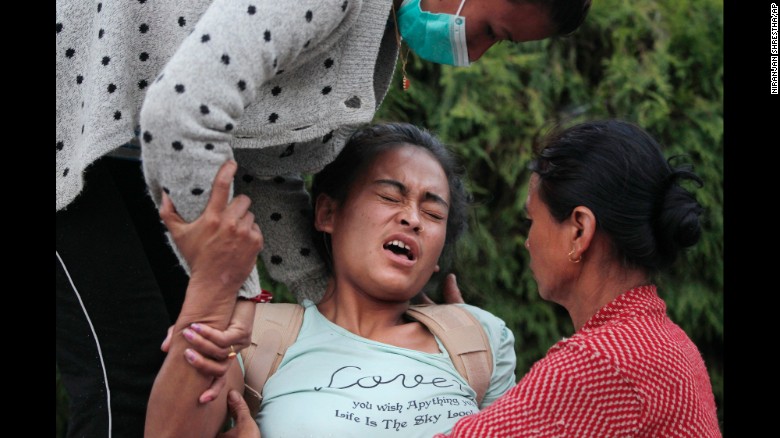
Nepal struck by another deadly quake 15 photos
A woman tries to sit up at a hospital in Kathmandu on May 12.
Hide Caption
10 of 15
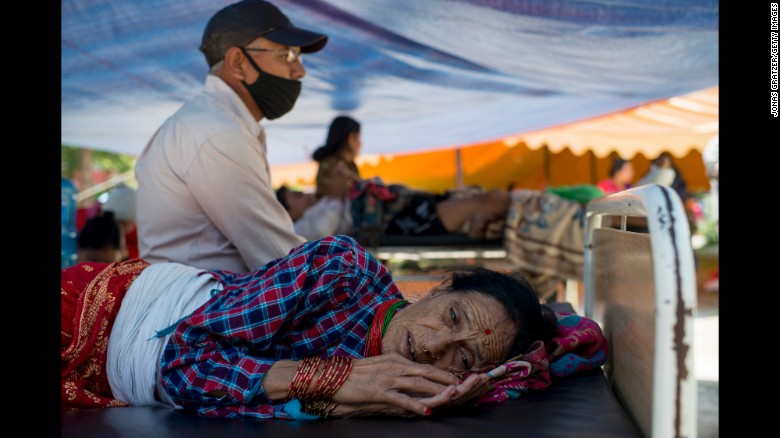
Nepal struck by another deadly quake 15 photos
A woman rests at a makeshift hospital in Kathmandu on May 12.
Hide Caption
11 of 15
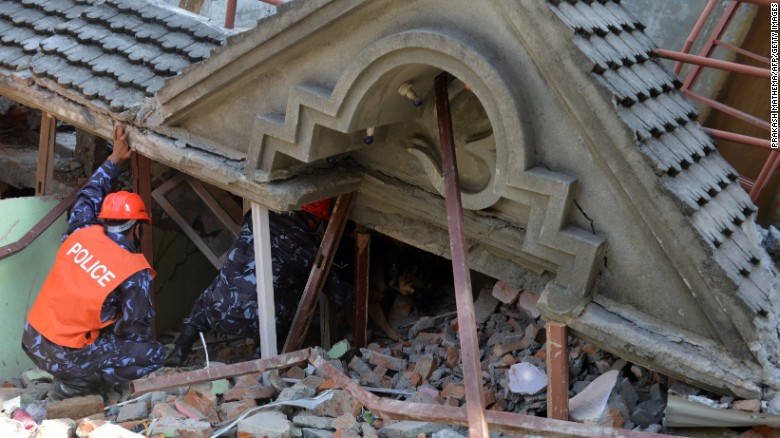
Nepal struck by another deadly quake 15 photos
Rescue teams search for survivors in Kathmandu on May 12.
Hide Caption
12 of 15
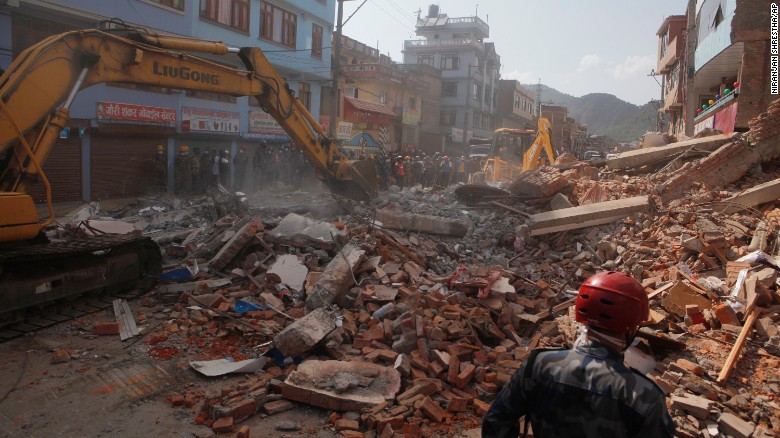
Nepal struck by another deadly quake 15 photos
Debris is cleared from the site of a collapsed building in Kathmandu on May 12.
Hide Caption
13 of 15
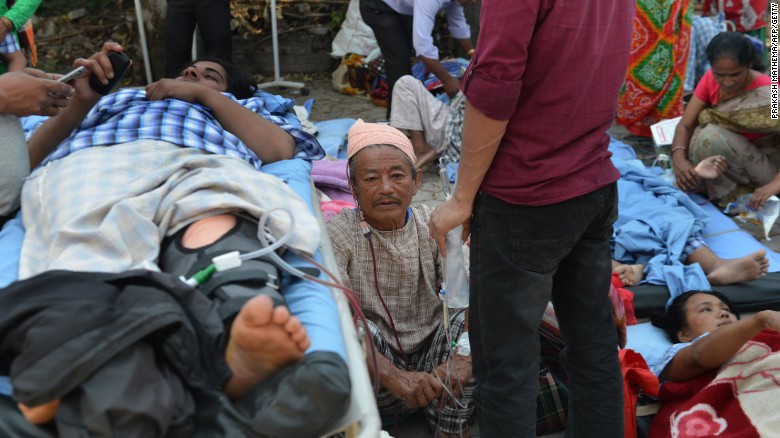
Nepal struck by another deadly quake 15 photos
Patients lie on stretchers in an open area after being carried out of a hospital building on May 12.
Hide Caption
14 of 15
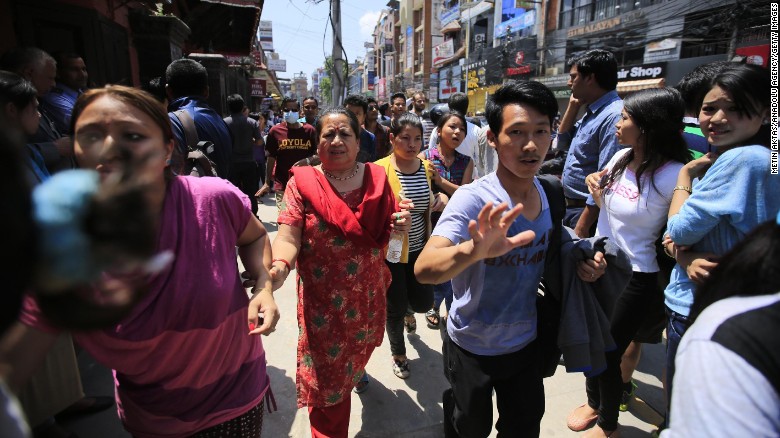
Nepal struck by another deadly quake 15 photos
People in Kathmandu hurry along a street after the quake struck on May 12.
Hide Caption
15 of 15
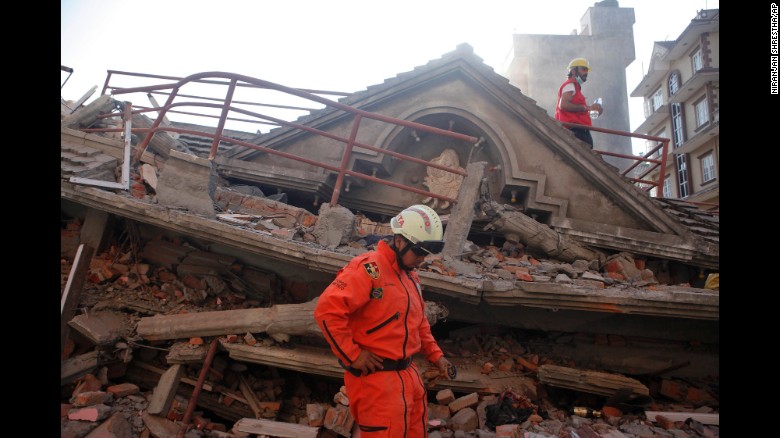
Nepal struck by another deadly quake 15 photos
A rescue worker from Mexico stands at the site of a building that collapsed during an earthquake in Kathmandu, Nepal, on Tuesday, May 12. The region was struck with a magnitude-7.3 earthquake only 17 days after a magnitude-7.8 quake left thousands dead.
Hide Caption
1 of 15
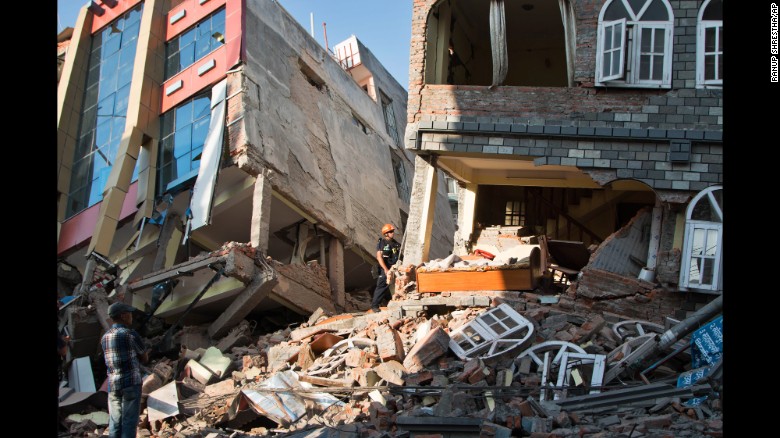
Nepal struck by another deadly quake 15 photos
People look through the debris of buildings in Kathmandu on May 12.
Hide Caption
2 of 15
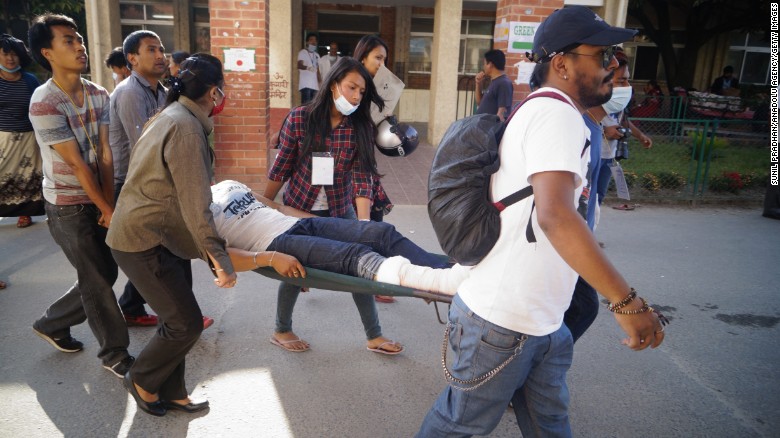
Nepal struck by another deadly quake 15 photos
An injured person is carried in Kathmandu on May 12.
Hide Caption
3 of 15
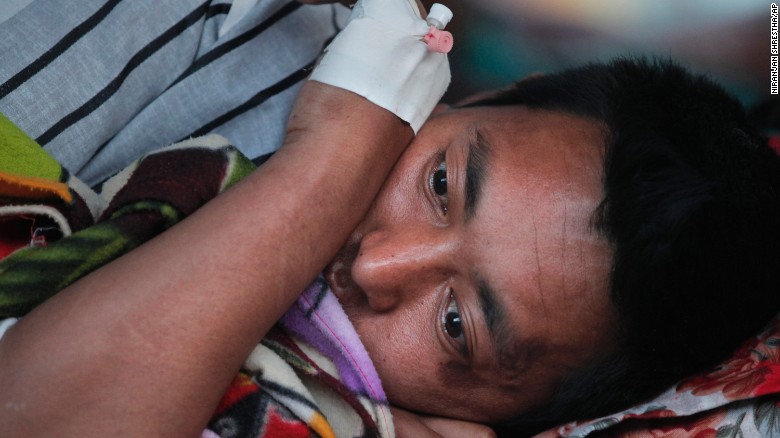
Nepal struck by another deadly quake 15 photos
An injured man rests at a hospital in Kathmandu on May 12.
Hide Caption
4 of 15
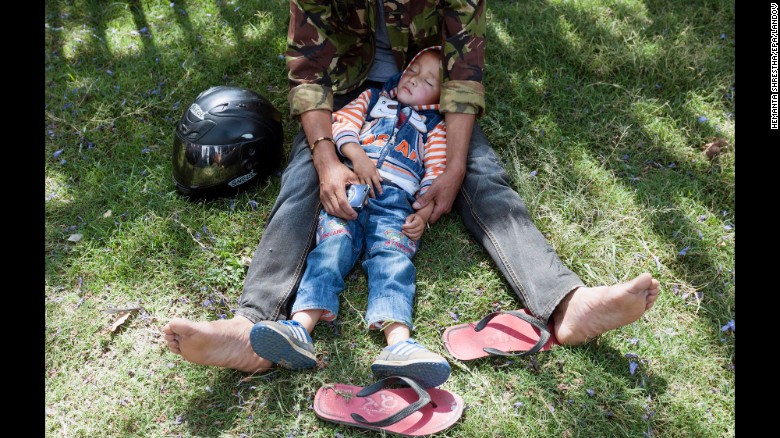
Nepal struck by another deadly quake 15 photos
A boy sleeps in his father's lap after they moved to an open area in the Tundikhel area of Kathmandu on May 12.
Hide Caption
5 of 15
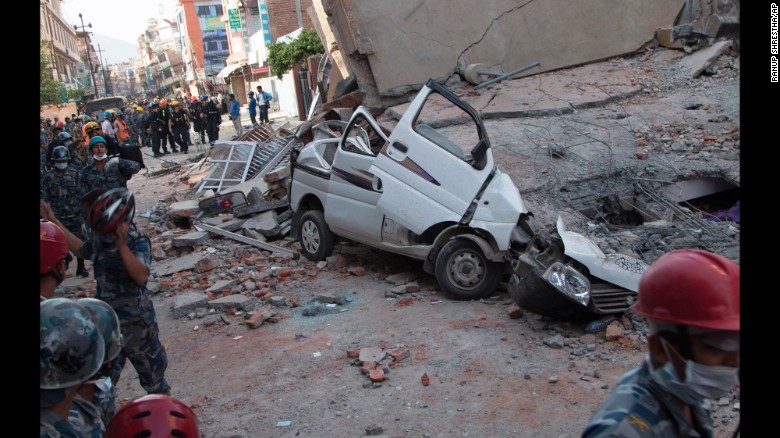
Nepal struck by another deadly quake 15 photos
A car is smashed under the weight of a collapsed building in Kathmandu on May 12.
Hide Caption
6 of 15
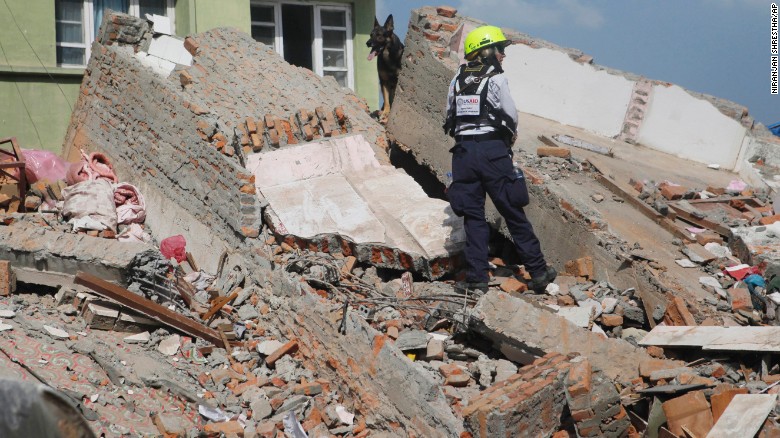
Nepal struck by another deadly quake 15 photos
A rescue worker from the U.S. Agency for International Development looks for survivors in Kathmandu along with a sniffer dog on May 12.
Hide Caption
7 of 15

Nepal struck by another deadly quake 15 photos
People are carried out of a hospital building in Kathmandu on May 12.
Hide Caption
8 of 15

Nepal struck by another deadly quake 15 photos
People gather in an open space in Kathmandu on May 12.
Hide Caption
9 of 15

Nepal struck by another deadly quake 15 photos
A woman tries to sit up at a hospital in Kathmandu on May 12.
Hide Caption
10 of 15

Nepal struck by another deadly quake 15 photos
A woman rests at a makeshift hospital in Kathmandu on May 12.
Hide Caption
11 of 15

Nepal struck by another deadly quake 15 photos
Rescue teams search for survivors in Kathmandu on May 12.
Hide Caption
12 of 15

Nepal struck by another deadly quake 15 photos
Debris is cleared from the site of a collapsed building in Kathmandu on May 12.
Hide Caption
13 of 15

Nepal struck by another deadly quake 15 photos
Patients lie on stretchers in an open area after being carried out of a hospital building on May 12.
Hide Caption
14 of 15

Nepal struck by another deadly quake 15 photos
People in Kathmandu hurry along a street after the quake struck on May 12.
Hide Caption
15 of 15

Nepal struck by another deadly quake 15 photos
A rescue worker from Mexico stands at the site of a building that collapsed during an earthquake in Kathmandu, Nepal, on Tuesday, May 12. The region was struck with a magnitude-7.3 earthquake only 17 days after a magnitude-7.8 quake left thousands dead.
Hide Caption
1 of 15

Nepal struck by another deadly quake 15 photos
People look through the debris of buildings in Kathmandu on May 12.
Hide Caption
2 of 15

Nepal struck by another deadly quake 15 photos
An injured person is carried in Kathmandu on May 12.
Hide Caption
3 of 15

Nepal struck by another deadly quake 15 photos
An injured man rests at a hospital in Kathmandu on May 12.
Hide Caption
4 of 15

Nepal struck by another deadly quake 15 photos
A boy sleeps in his father's lap after they moved to an open area in the Tundikhel area of Kathmandu on May 12.
Hide Caption
5 of 15

Nepal struck by another deadly quake 15 photos
A car is smashed under the weight of a collapsed building in Kathmandu on May 12.
Hide Caption
6 of 15

Nepal struck by another deadly quake 15 photos
A rescue worker from the U.S. Agency for International Development looks for survivors in Kathmandu along with a sniffer dog on May 12.
Hide Caption
7 of 15

Nepal struck by another deadly quake 15 photos
People are carried out of a hospital building in Kathmandu on May 12.
Hide Caption
8 of 15
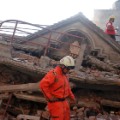
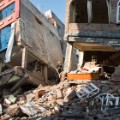
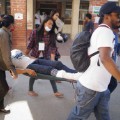
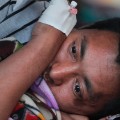
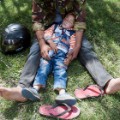
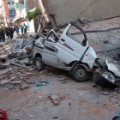
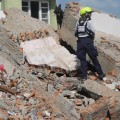
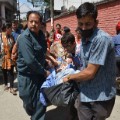
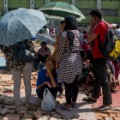
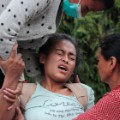
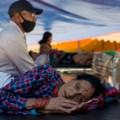
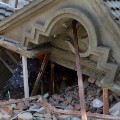
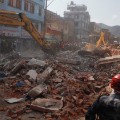
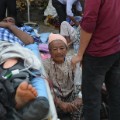
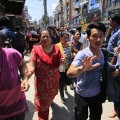
Subscribe to:
Comments (Atom)

